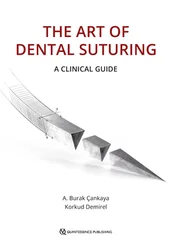Think I'll wander down and see you when you're married--eh, my
boy? When the honeymoon is over and you're settled down, we'll
try--What? the deuce you say! Rejected--you rejected? So was
I.
--_Anonymous_.
The necessity for changing pitch is so self-evident that it should be
grasped and applied immediately. However, it requires patient drill to
free yourself from monotony of pitch.
In natural conversation you think of an idea first, and then find words
to express it. In memorized speeches you are liable to speak the words,
and then think what they mean--and many speakers seem to trouble very
little even about that. Is it any wonder that reversing the process
should reverse the result? Get back to nature in your methods of
expression.
Read the following selection in a nonchalant manner, never pausing to
think what the words really mean. Try it again, carefully studying the
thought you have assimilated. Believe the idea, desire to express it
effectively, and imagine an audience before you. Look them earnestly in
the face and repeat this truth. If you follow directions, you will note
that you have made many changes of pitch after several readings.
It is not work that kills men; it is worry. Work is healthy; you
can hardly put more upon a man than he can bear. Worry is rust
upon the blade. It is not the revolution that destroys the
machinery but the friction.
--HENRY WARD BEECHER.
_Change of Pitch Produces Emphasis_
This is a highly important statement. Variety in pitch maintains the
hearer's interest, but one of the surest ways to compel attention--to
secure unusual emphasis--is to change the pitch of your voice suddenly
and in a marked degree. A great contrast always arouses attention. White
shows whiter against black; a cannon roars louder in the Sahara silence
than in the Chicago hurly burly--these are simple illustrations of the
power of contrast.
"What is Congress going to do next?
(High pitch) |
|
| I do not know."
-----------------
(Low pitch)
By such sudden change of pitch during a sermon Dr. Newell Dwight Hillis
recently achieved great emphasis and suggested the gravity of the
question he had raised.
The foregoing order of pitch-change might be reversed with equally good
effect, though with a slight change in seriousness--either method
produces emphasis when used intelligently, that is, with a common-sense
appreciation of the sort of emphasis to be attained.
In attempting these contrasts of pitch it is important to avoid
unpleasant extremes. Most speakers pitch their voices too high. One of
the secrets of Mr. Bryan's eloquence is his low, bell-like voice.
Shakespeare said that a soft, gentle, low voice was "an excellent thing
in woman;" it is no less so in man, for a voice need not be blatant to
be powerful,--and _must_ not be, to be pleasing.
In closing, let us emphasize anew the importance of using variety of
pitch. You sing up and down the scale, first touching one note and then
another above or below it. Do likewise in speaking.
Thought and individual taste must generally be your guide as to where to
use a low, a moderate, or a high pitch.
1. Name two methods of destroying monotony and gaining force in
speaking.
2. Why is a continual change of pitch necessary in speaking?
3. Notice your habitual tones in speaking. Are they too high to be
pleasant?
4. Do we express the following thoughts and emotions in a low or a high
pitch? Which may be expressed in either high or low pitch? Excitement.
Victory. Defeat. Sorrow. Love. Earnestness. Fear.
5. How would you naturally vary the pitch in introducing an explanatory
or parenthetical expression like the following:
He started--_that is, he made preparations to start_--on
September third.
6. Speak the following lines with as marked variations in pitch as your
interpretation of the sense may dictate. Try each line in two different
ways. Which, in each instance, is the more effective--and why?
What have I to gain from you? Nothing.
To engage our nation in such a compact would be an infamy.
Note: In the foregoing sentence, experiment as to where the
change in pitch would better be made.
Once the flowers distilled their fragrance here, but now see the
devastations of war.
He had reckoned without one prime factor--his conscience.
7. Make a diagram of a conversation you have heard, showing where high
and low pitches were used. Were these changes in pitch advisable? Why or
why not?
8. Read the selections on pages 34, 35, 36, 37 and 38, paying careful
attention to the changes in pitch. Reread, substituting low pitch for
high, and vice versa.
_Selections for Practise_
Note: In the following selections, those passages that may best be
delivered in a moderate pitch are printed in ordinary (roman) type.
Those which may be rendered in a high pitch--do not make the mistake of
raising the voice too high--are printed _in italics_. Those which might
well be spoken in a low pitch are printed in _CAPITALS_.
These arrangements, however, are merely suggestive--we cannot make it
strong enough that you must use your own judgment in interpreting a
selection. Before doing so, however, it is well to practise these
passages as they are marked.
_Yes, all men labor. RUFUS CHOATE AND DANIEL WEBSTER_ labor, say
the critics. But every man who reads of the labor question knows
that it means the movement of the men that earn their living
with their hands; _THAT ARE EMPLOYED, AND PAID WAGES: are
gathered under roofs of factories, sent out on farms, sent out
on ships, gathered on the walls._ In popular acceptation, the
working class means the men that work with their hands, for
wages, so many hours a day, employed by great capitalists; that
work for everybody else. Why do we move for this class? "_Why_,"
asks a critic, "_don't you move FOR ALL WORKINGMEN?" BECAUSE,
WHILE DANIEL WEBSTER GETS FORTY THOUSAND DOLLARS FOR ARGUING THE
MEXICAN CLAIMS, there is no need of anybody's moving for him.
BECAUSE, WHILE RUFUS CHOATE GETS FIVE THOUSAND DOLLARS FOR
MAKING ONE ARGUMENT TO A JURY, there is no need of moving for
him, or for the men that work with their brains_,--that do
highly disciplined and skilled labor, invent, and write books.
The reason why the Labor movement confines itself to a single
class is because that class of work _DOES NOT GET PAID, does not
get protection. MENTAL LABOR is adequately paid_, and _MORE THAN
ADEQUATELY protected. IT CAN SHIFT ITS CHANNELS; it can vary
according to the supply and demand_.
_IF A MAN FAILS AS A MINISTER, why, he becomes a railway
conductor. IF THAT DOESN'T SUIT HIM, he goes West, and becomes
governor of a territory. AND IF HE FINDS HIMSELF INCAPABLE OF
EITHER OF THESE POSITIONS, he comes home, and gets to be a city
editor_. He varies his occupation as he pleases, and doesn't
need protection. _BUT THE GREAT MASS, CHAINED TO A TRADE, DOOMED
TO BE GROUND UP IN THE MILL OF SUPPLY AND DEMAND, THAT WORK SO
MANY HOURS A DAY, AND MUST RUN IN THE GREAT RUTS OF
BUSINESS,--they are the men whose inadequate protection, whose
unfair share of the general product, claims a movement in their
behalf_.
--WENDELL PHILLIPS.
_KNOWING THE PRICE WE MUST PAY, THE SACRIFICE WE MUST MAKE, THE
BURDENS WE MUST CARRY, THE ASSAULTS WE MUST ENDURE--KNOWING FULL
Читать дальше












